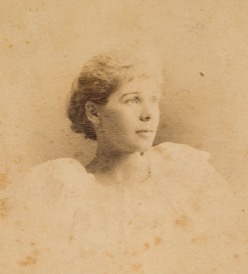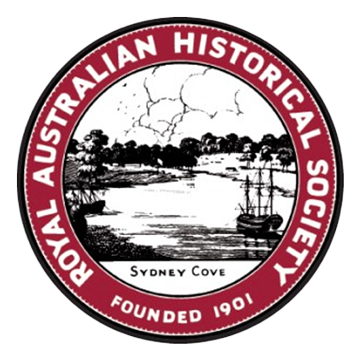Written by Elizabeth Heffernan, RAHS Volunteer
To celebrate Women’s History Month in 2020, the Royal Australian Historical Society will continue our work from last year to highlight Australian women that have contributed to our history in various and meaningful ways. You can browse the women featured on our webpage, Women’s History Month.
Audacious, unpredictable, bewitching – these are just some of the words used to describe Australian writer, poet, and First World War correspondent Louise Mack during and after her remarkable lifetime.
One of thirteen children born to Hans and Jemima Mack in Hobart, 1870, Louise made a name for herself as early as her teenage years. When the family moved to Sydney in 1882, Louise enrolled in Sydney Girls’ High School, where she and her friend Ethel Turner – who would go on to write the classic novel Seven Little Australians – edited rival magazines. [1]

Louise Mack, writer, August 1897 / photographer J. Hubert Newman [Image courtesy State Library of New South Wales, FL3283990]
Success did not come easily overseas. Louise spent her first year there struggling to make ends meet, writing about her experiences in her 1902 book An Australian Girl in London. The work was well-received, and Louise was finally able to forge lasting connections in London’s literary sphere. [3]
Everything changed in 1914 when war rocked the world on a scale never before seen. Despite Lord Kitchener’s restrictions on war correspondents on the Western Front, Louise managed to make her way into occupied Belgium. She travelled through German lines to Brussels, Louvain, and Antwerp, all the while reporting for both the Evening News and Daily Mail. [4]
Louise’s memoir of her time on the front, A Woman’s Experiences in the Great War, recalls how she was the last journalist left in Antwerp after all others had fled: “The whole city was mine. I seemed to be the only living thing left … The ghosts of five hundred thousand people floated before my vision.” [5] She departed the city only days later, disguised as a hotel maid and smuggled from the country with a false passport. Louise’s account of her final days on the Western Front cannot be confirmed. Indeed, fellow Australian war correspondent Frank Fox recalls that she left Belgium along with the other reporters. [6]
True or not, the story was compelling enough to launch Louise on a nationwide tour upon her return home to Australia. As one Queanbeyan newspaper reported in 1918: “This is Miss Louise Mack, the pretty and charming little lady who has been thrilling crowded houses all over Australia with her wonderful recital: ‘What I saw in the War’.” [7] Her lectures were almost certainly embellished versions of the truth, becoming more and more sensationalised with every new audience. It is for this very reason, historian Jeannine Baker argues, that Louise Mack has yet to be properly studied for her role in Australian military and media history. [8]
Yet despite the sensationalism, despite the embellishment, at the core of Louise’s experiences lies the very important contribution she made towards women’s achievements in journalism. Reporting on her death in 1935, the Sydney Morning Herald had this to say: “Her work would live after her.” [9] Eighty-five years later, we can say with certainty that it did.
References:
[2] Phelan, ‘Biography’.
[3] Phelan, ‘Biography’.
[4] Munro, ‘Louise Mack’.
[5] Louise Mack, A Woman’s Experiences in the Great War (London: T Fisher Unwin, 1915), 126.
[6] Jeannine Baker, Australian Women War Reporters: Boer War to Vietnam (Sydney: NewSouth Publishing, 2015), 29.
[7] ‘Louise Mack’, Queanbeyan Age and Queanbeyan Observer, 4 January 1918, 2, <https://trove.nla.gov.au/newspaper/article/31641473>, accessed 5 February 2020.
[8] Baker, Australian Women War Reporters, 31.
[9] ‘DEATH OF LOUISE MACK’, The Sydney Morning Herald, 26 November 1935, 12, <https://trove.nla.gov.au/newspaper/article/17209888>, accessed 5 February 2020.
